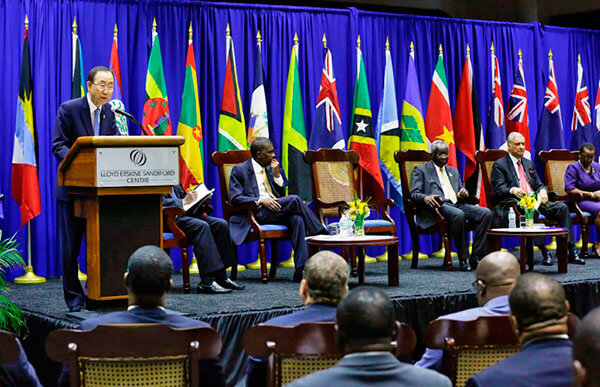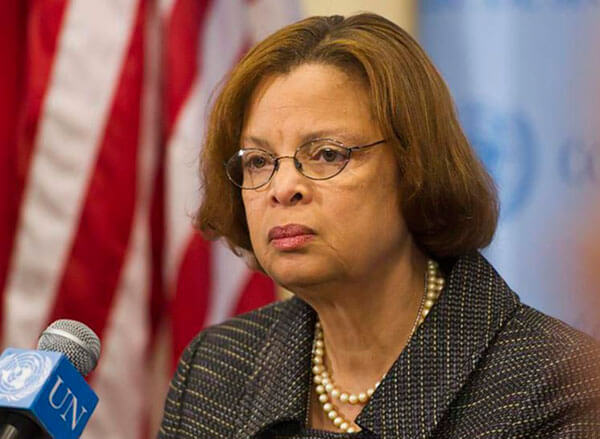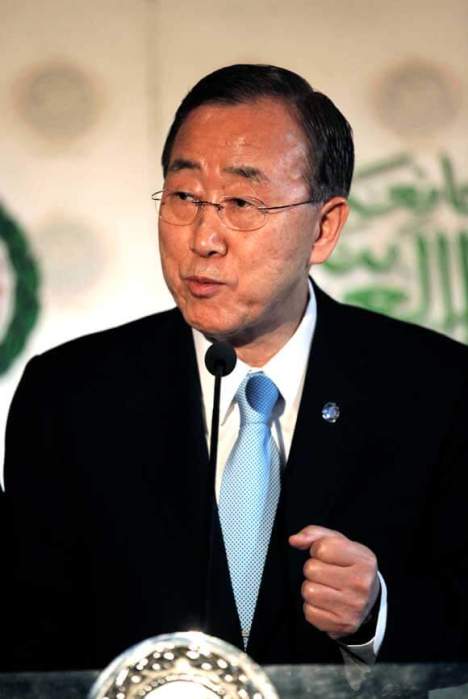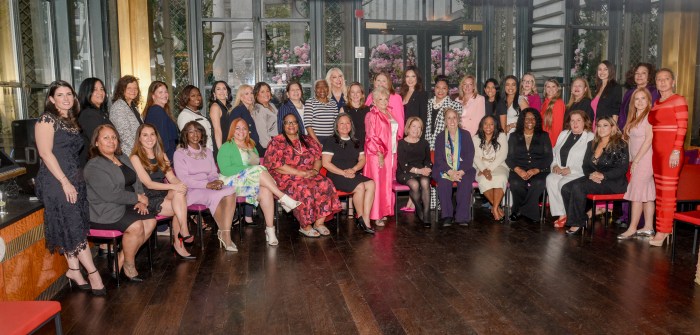United Nations Secretary General Ban Ki-moon says Caribbean states are “lighting the path” towards a sustainable future, as the international community is in the final stretch of preparing a transformative post-2015 agenda for sustainable development.
“I want to salute Caribbean countries for taking on ambitious renewable energy targets,” declared Ban in Bridgetown, Barbados on Thursday in addressing a high-level symposium focused on sustainable development in the Caribbean.
“By 2020, for example, Barbados will be one of the world’s top five leading users of solar energy on a per capita basis,” he added. “You are lighting the path to the future.”
The U.N. said the post-2015 agenda for sustainable development will be agreed on at U.N. headquarters in New York in September.
Two decades ago, the U.N.’s Barbados Program of Action was adopted here to tackle vulnerabilities facing Small Island States (SIDS).
“My main message to you is to remain fully engaged and keep working with us to strengthen our partnership during this vital year for humanity,” Ban told delegates in Barbados on Thursday. “Together, we can build a better, more sustainable world, for all.”
The meeting was among the U.N. chief’s first stops in Barbados, where later on Thursday he made opening remarks to the 2015 Caribbean Community (CARICOM) Summit.
On Friday, he, among others, held an interactive dialogue at the University of the West Indies.
“Twenty years ago, this very building was the site of the First Global Conference on Small Island Developing States that adopted the Barbados Program of Action – the first compact between this group and the international community,” noted Ban, adding that, for SIDS the place is “hallowed ground.”
Bolstered by the presence of many leaders of governments, regional and international organizations, the private sector, academia, and civil society, the U.N. Secretary-General underscored the “continuing Caribbean commitment to put our world on a safer, more sustainable and equitable pathway,” a few days from the Third International Conference on Financing for Development in Addis Ababa, Ethiopia.
“As leaders of some of the most vulnerable countries in the world, you don’t need to be told that our planet is at grave risk,” he said. “You are on the climate frontlines. You see it every day.”
Convinced that sustainable development and climate change are “two sides of the same coin,” the U.N. top official said this generation could be the first to end global poverty and the last to prevent the worst impacts of global warming “before it is too late.”
To get there, he urged that the international community ensure that the proposed sustainable development goals (SDGs) are “focused, financed and followed up – with real targets, real money and a real determination to achieve them.”
Considering these goals as a sort of a “to-do list for people and the planet,” Ban emphasized that it will take partnerships to make that happen.
In this regard, he said, the Third International Conference on Small Islands Developing States in Samoa last year laid a pathway for collective action and success within the post-2015 development agenda.
But, as the world prepares for a new sustainability framework and the sustainable development goals, the U.N. said a number of critical partnership areas must be strengthened, in particular the need for capacity building; financing; access to technology; and improved data collection and statistics.
Member States also must continue working together to link the global agenda to regional agendas and to deepen regional integration and to address the “unique needs and vulnerabilities” of SIDS and middle-income countries, such as the debt challenge, Ban said.
“And we need to keep forging the way forward towards a low-carbon, climate-resilient development pathway that will benefit both people and the planet,” he said.
Ban assured that, through the Green Climate Fund, and in working with world leaders, he will continue to insist that small islands and least developed countries are top-funding priorities.
“My main message to you is to remain fully engaged and keep working with us to strengthen our partnership during this vital year for humanity,” he said. “Together, we can build a better, more sustainable world, for all.”
Later, in an address to an event on ending violence against women, the U.N. Secretary-General said the Caribbean has among the highest rates of sexual assault in the world.
Without identifying them, the U.N. said three Caribbean countries are in the global top 10 for recorded rapes.
Moreover, Ban noted that in the eastern Caribbean, the United Nations Children’s Fund (UNICEF) estimates that child sexual abuse rates are between 20 and 45 percent – meaning at least one in five precious children are affected. Most are girls who have no choice but to live close to their attacker.
“They desperately need our help,” he said. “Too many women are afraid to seek help. One study showed that up to two thirds of all victims suffer without ever reporting the crime.
“I am outraged by this,” Ban added. “Shame belongs to the perpetrators – not the victims. We have to change mindsets – especially among men.”
In that light, he said he was proud to be the first man to sign onto the U.N.’s HeForShecampaign, inviting more men to take the HeForShe pledge.
“I encourage you to join UNICEF’s End Violence global campaign,” Ban said. “And every day, I count on all of you to work for true equality.”


























